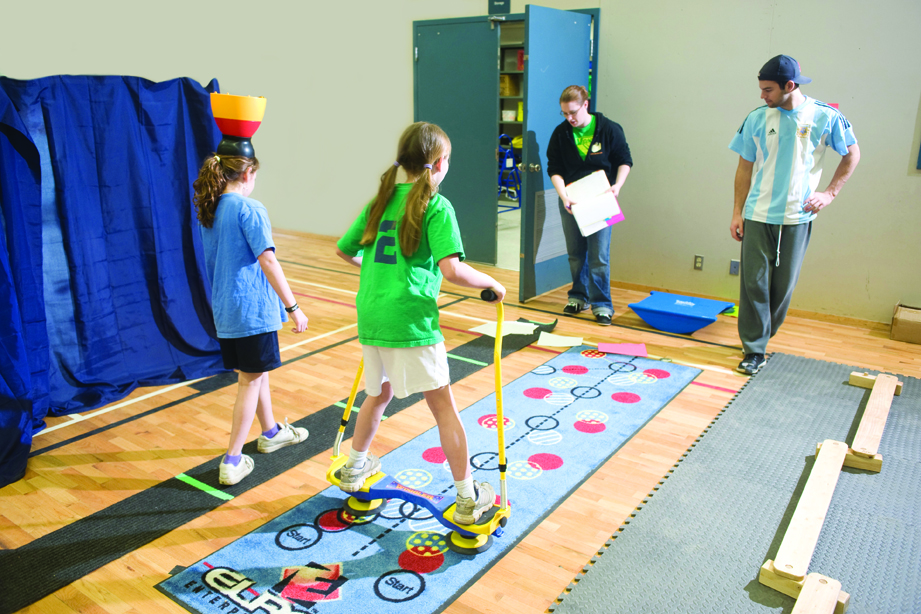Project Description
Challenge
Approximately 1 in 100 children per year are affected by prenatal alcohol exposure. These estimates translate to thousands of affected infants born with Fetal Alcohol Spectrum Disorder (FASD). Individuals with FASD can suffer from neuropsychological deficits, particularly in executive function (EF), which result in poor performance in school or at work, and in day to day function. Intervention programs for children with FASD have traditionally focused on addressing deficits. Such programs have met with limited success, and there is a growing consensus that new and innovative approaches are needed. One approach was to design intervention programs that focus on developing a child’s strengths instead.
Project Summary
The goal of this project was to investigate the effects of two programs for children with FASD. The first was a motor skill development program called FAST Club. The second was a neurofeedback training program for self-regulation called Braingamers.
FAST Club consisted of 90-minute sessions and had seven stations. These stations focused on manual dexterity and accuracy, balance, bilateral coordination, upper limb coordination, speed and agility, strength, and fine motor control. Of these seven stations, each child participated in three—the three in which they scored the highest on their initial assessment. Also, each participant chose one motor skill they’d like to work on. Each child was guided through the stations by their individual university student instructor.
Braingamers used off-the-shelf computer games to which a graphical overlay was added through newly developed software. The graphical overlay allowed the game to be obscured, the degree to which was controlled by the electrical activity of the child’s brain, specifically their Theta/low Beta ratio. The child could decrease the obscurity by reducing their Theta/low Beta ratio. Higher Theta band activity is related to a decrease in attention. In contrast, lower activity in the low Beta band is linked to increases in hyperactivity and impulsivity.
Result
FASTClub was successful in improving scores on tests of visuospatial processing and a number of executive function skills (inhibition, set shifting, cognitive flexibility and self-monitoring).The children appeared to learn to control their brain activity through the Braingamer sessions, as the mean Theta/low Beta ratio was significantly decreased in the last half of sessions, compared to the first half of sessions. Improvements were also found on tests of overall EF skills and inhibitory control. These results provide feasible and promising approaches to improving self-regulation and EF skills in children with FASD.
Team
Investigators
Dr. Chris Bertram, University of the Fraser Valley
Dr. Kathy Keiver, University of Fraser Valley
Alison Pritchard Orr, University of the Fraser Valley
Dr. James Reynolds, Queen’s University
Dr. Sterling Clarren, University of British Columbia
Dr. Bruce Gooch, University of Victoria
Dr. Regan Mandryk, University of Saskatchewan
Collaborators
Dr. Share Dunne, Dunne & Associates
Fraser Valley Child Development Centre








